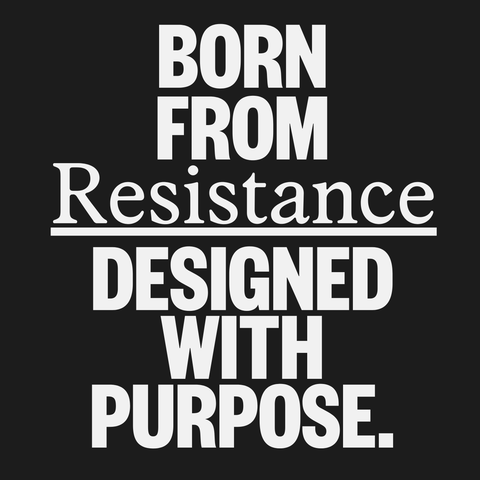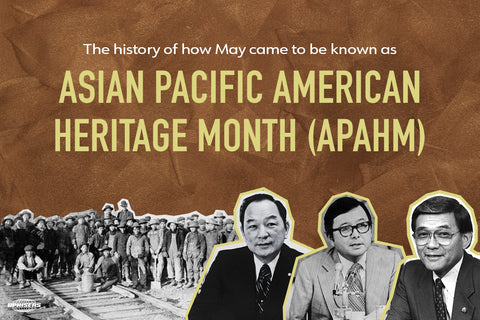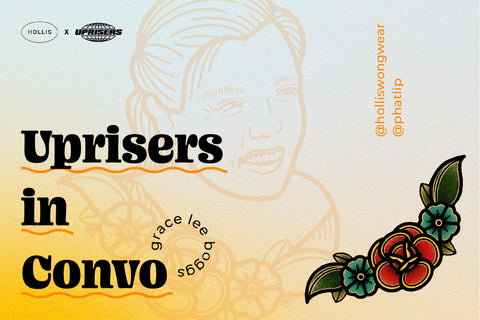They’ve taken music to another level – a fifteen-track album dedicated to 170+ years Asian American stories.
It’s an honor to be Asian American, according to Los Angeles and Atlanta based rappers jasonchumusic and Alan Z. The two trailblazing and skilled artists are shifting the paradigm – embracing Asian American history when it’s oftentimes ignored. They tastefully, informatively and powerfully highlight Asian American history and personal testimonies.
If this past year braving a pandemic has taught us anything, it’s the reality Asian Americans were warring against two viruses. Amidst difficult and challenging times, this dynamic duo are serving nuanced perspectives and activism. Initially inspired in the thick of the storm, this album meets the moment of remembering and honoring our Asian roots as well as continually contributing to the legacy and providing extended avenues for growth moving forward.
We caught up with the artists about the creative process of composing the fifteen-track masterpiece covering 170+ years of Asian American history. You can hear features from Ronny Chieng, Dante Basco, Aj Rafael, Htet, Humble the Poet, and more. Continue reading for the full conversation.

UPRISERS: Can you tell us a little bit about yourself and your latest album?
jasonchumusic: My name is jasonchu, this is my buddy Alan Z. We're both musicians and artists. I'm a rapper and activist based in Los Angeles, California. We're dropping an album called “Face Value,” which is all about Asian American history, soul and activism. It's really just our way of trying to take the history that's often erased, often ignored, often not heard enough and put it out there in a way that's not a TED Talk or a lecture or like: ‘Yo, here's like my master class on Asian-American history.’ But it's like: ‘Yo, just hear some good sounding music with great features you can play in the background and then suddenly be like: ‘Oh wow, I can hear a lot of things I have never heard before.
Alan Z: For those that don't know me, my name is Alan Z. I’m a rapper, singer, actor in Atlanta, Georgia. The way I would describe our album “Face Value” is it's contextually a hip-hop record based around Asian-American history and experiences. But the musicality of it goes beyond just our history. It's American history. Because the passion and the language of the message of what we're trying to say is so powerful and universal, it's something that you don't have to be Asian to enjoy. That was a huge part of what we wanted to do with the music side of it.
UPRISERS: What were the initial conversations that inspired Face Value?
jasonchumusic: Me being who I am, what I want to say is this has been our work our whole lives. Because really to get to the point where Alan and I are operating on a level of artistry that we can write and tackle these really difficult topics in a sort of non corny way has really been the work of a lifetime. But I will also say just becoming the kind of people that understand how to navigate these difficult conversations, because what I see so many people who want to do the right thing, who want to represent API issues, they’re often very reactive. One of my pet peeves is when people go: ‘It's time to finally break the silence and speak up’ or ‘Now we can't afford to be silent anymore.’ And that's a great sentiment, but what that reveals is that you don't know anything about Asian-American history because Asian Americans have never been silent. That's actually a racist myth and a stereotype about us. So the convo really happened last summer when Hate Is A Virus was launching and all the orgs were starting to address COVID-19 and anti-Asian racism.
Alan Z: To add onto Jason's frustration, whenever the conversation from an Asian influencer or whoever says ‘I'm the first Asian to ever talk about it’ is so frustrating because you're erasing your ancestors’ history. And what we want to do with this project is pay homage and show respect for all the work that's been done before us. We weren’t called Asian American until 1968, so it shows that, one, how fresh it is but also what it took to get there. We came together as a coalition. There’s still tribalism within Asian communities, but we’re trying to bridge the gaps so that we can come together in solidarity.
UPRISERS: We’re so grateful that you asked Michelle K. Hanabusa and her team to design the album art. Could you share with us your roots story and what these photos represent?
Alan Z: Yeah so when Michelle gave us a prompt of adding a personal touch to the album art, which she created for “Face Value,” I thought about my childhood. I have this iconic photo of when I was nine years old with a bunch of black kids that came to my house to eat and play video games. We see so much racial tension, but when we break down, we're all human, right? There are ways we can come together and talk. So I remember when I was nine, in elementary school, I was constantly bullied and ridiculed. But what broke it for me was the people that didn't do that. I have a story I never shared. When I was in first grade, there was this fifth grader that came up to me and was like: ‘Yo, I'ma beat your ass, Bruce Lee.’ I'm like: ‘Why.’ The next day I told my teacher she did nothing. He comes up with two more fifth graders. All three of them surrounded me and they’re like ‘Yo, we’re going to beat your ass.’ I barely spoke the language right, because I just immigrated and I was in first grade. Then this dude, Parry, from my class was like: ‘Yo, if you're going to beat up Alan, you got beat me up too.’ We were two first graders who stood our ground and he left us alone. That moment to me was like: ‘Yo, there's bad people, there's good people.’ I took that memory with me and I think about that birthday party where there wasn’t a single Asian kid but we still got along. It wasn’t because of cultural likeness, but because we liked each other.
jasonchumusic: It’s a photo of my dad. I grew up in Delaware, just a suburb, not a very Asian American area. I was back in Delaware over the holidays because there was this surge in LA. I was quarantining with them. I was going through a lot of old photo albums and pictures from my family – specifically from my parents' childhood. Then I got this photo of my dad which was taken when he was just graduating high school and coming to America to be a college student. Looking at that was so symbolic to me because I look at my dad now and I think about all that he's gone through. It’s wild that I'm a rapper now. I make my living off of making and listening to culture as well as creating things for the community. I chose that photo because to me it represents this whole sweep of history: from my dad when he was a kid in Thailand, thinking about moving to America to now his son getting to do things like this. It’s literally our friends that are helping to build the culture. It all comes back to whenever our families came to America. It comes back to some kids, in their twenties, taking that step into the unknown. And then here we are as the fruit of that tree.
UPRISERS: What is the lasting impact that you want or hope this album services to listeners?
Alan Z: For me, the ultimate goal of everything I do would be to end the cycle of violence towards our people, especially our elders, our women and children. A big goal for me is to be able to bring more empathy and humanize us as people. With this project, there's so much depth and information of what we’ve been through, not just in 2021 but way before that. Hopefully people will stop seeing through the model minority lens where they think it's OK to gaslight us. So breaking that apart and then going deeper into our roots and our heritage. I think that's my goal: when people listen to it, they get more of what it means to be Asian American as opposed to what you've been fed about who you are.
jasonchumusic: I'll be real, and it sounds corny sometimes, but my mission statement, when I moved to L.A. to do music, was to speak hope and healing in a broken world. And that's still true. It's not the coolest, toughest thing to say, but that's what I want. Anything I do, I want to help people find hope and help them heal from the f*cked up shit that happens.
I was just talking to one of my younger sisters the other night. We were talking about therapy and how therapy isn’t just for when you're feeling real down but it can be for when you’re feeling happy. We have gone through some bullshit in this life and we all need healing. And so I hope that any music I make or any work I do leaves an impression. I hope that it helps people look with hopeful and realistic eyes. And that, for me, is really kind of the goal of my work with “Face value.”
I'm so glad to work with Alan on this, because I think we both have been through things but we’re trying to come around to a point where we're trying to give people something. I think there's a lot in art and entertainment that's about getting: ‘I need to be heard,’ ‘I need to be seen,’ ‘I need to make money,’ ‘I need to survive.’ I'm super proud that we realize that it's not just about what we can get for ourselves, but it's what we can give and what we can lead. Trust me, we want them strings, them deals, them shows but the way to get to them, I think, is by giving. Our friend Andrew from Boba Guys, he always reminds me that: ‘When you give to good people, when you help the people around you, it comes back to you.’ And so that’s the ethos I really try to take into projects like this. To give wholeheartedly to people that helps them, that could bring value to their lives. If you’re helping people and bringing value to their lives, you’re not going hungry either. We’ll all come up together.









